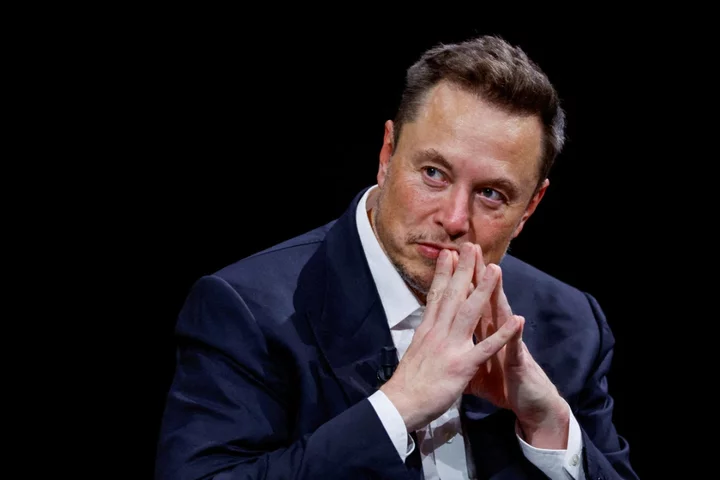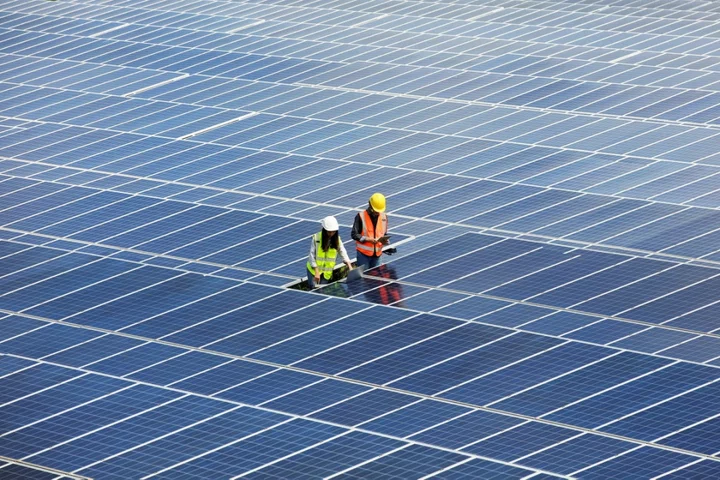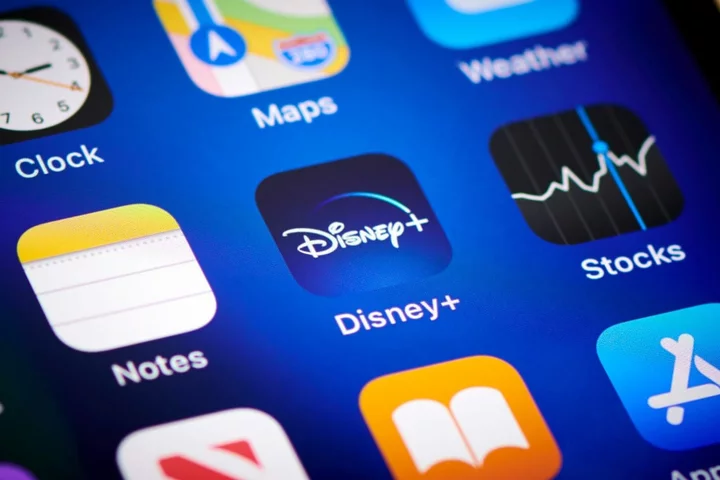
Save $5 on an Xbox Game Pass Ultimate subscription for a limited time
SAVE $5: As of July 21, Xbox Game Pass Ultimate subscriptions are on sale at
2023-07-21 23:59

Madden 24 Combine Interview Answers
Check out all the Madden 24 Combine Interview answers here to raise your Draft Stock in Madden 24 Superstar Mode.
2023-08-16 00:26

$35K Volvo EX30 Is a High-Tech, Sophisticated EV for Urban Drivers
Volvo today unveiled the EX30, its smallest, most affordable electric vehicle yet. European customers can
2023-06-07 20:19

Tristan Tate once shared life-altering fashion advice with fans
Internet claims that's an 'expensive illustration' after Tristan Tate shares his go-to fashion tip
2023-09-10 14:54

AI Drug Discovery Firm Recursion Surges Following $50 Million Nvidia Investment
The latest sign of investors’ unrelenting demand for all things artificial intelligence related: a record rally in drug
2023-07-13 02:51

Adobe Reports Earnings Today. The Focus Is on Generative AI.
The company has been building outs its generative AI strategy. The question is when its AI push will start to show up in its financial results.
2023-09-14 13:22

Scientists discover that megaladon's went extinct because of themselves
Scientists believe they have discovered the cause of the megalodon's extinction – and no, it’s not Jason Statham. Experts have been conducting research on fossils of teeth from the biggest species of shark the world has ever seen, which went extinct around 3.6 million years ago and measured at least 15 metres long. Research published in the journal Proceedings of the National Academy of Sciences explains that the animal was actually partially warm-blooded. Unlike most cold-blood sharks, the body temperature is thought to have been around 27 degrees. The temperature is higher than the sea temperatures around the time. Sign up to our free Indy100 weekly newsletter Study co author Robert Eagle, who is professor of marine science and geobiology at UCLA, said [via CNN]: “We found that O. megalodon had body temperatures significantly elevated compared to other sharks, consistent with it having a degree of internal heat production as modern warm-blooded (endothermic) animals do.” They were able to prove that the animals were warm-blooded by analysing how carbon-13 and oxygen-18 isotopes were closely bonded together in the fossilised teeth. Senior study author Kenshu Shimada is a paleobiologist at DePaul University in Chicago, who said: “A large body promotes efficiency in prey capture with wider spatial coverage, but it requires a lot of energy to maintain. “We know that Megalodon had gigantic cutting teeth used for feeding on marine mammals, such as cetaceans and pinnipeds, based on the fossil record. The new study is consistent with the idea that the evolution of warm-bloodedness was a gateway for the gigantism in Megalodon to keep up with the high metabolic demand.” The fact it was warm-blooded means that regulating body temperature could have been the cause of its eventual demise. The Earth was cooling when the animal went extinct, which could have been a critical factor. “The fact that Megalodon disappeared suggests the likely vulnerability of being warm-blooded because warm-bloodedness requires constant food intake to sustain high metabolism,” Shimada said. “Possibly, there was a shift in the marine ecosystem due to the climatic cooling,” causing the sea level to drop, altering the habitats of the populations of the types of food megalodon fed on such as marine mammals and leading to its extinction. “One of the big implications for this work is that it highlights the vulnerability of large apex predators, such the modern great white shark, to climate change given similarities in their biology with megalodon,” said lead study author Michael Griffiths, professor of environmental science, geochemist and paleoclimatologist at William Paterson University. Have your say in our news democracy. Click the upvote icon at the top of the page to help raise this article through the indy100 rankings.
2023-07-04 21:54

Montana Becomes First State to Ban TikTok, Setting Up Legal Test
Montana Governor Greg Gianforte on Wednesday signed a law banning TikTok in the state, setting up the first
2023-05-18 07:58

Summer, Sun, Discounts - Smart Vacuum Cleaner Prices From Tineco
NEUSS, Germany--(BUSINESS WIRE)--Aug 15, 2023--
2023-08-15 15:25

How to Find The Breaker of Worlds in FF16
Here's how to find The Breaker of Worlds in Final Fantasy 16 and the rewards players will get for taking out the S-rank Hunt.
2023-07-07 05:53

Elon Musk pledges to fund legal bills of X users ‘unfairly treated’ by employers for their posts
Elon Musk has said X, previously known as Twitter, will fund the legal bills of any user ‘unfairly treated’ by an employer for their activity on the social media platform. Posting on the recently-rebranded site on Sunday, he added there would be ‘no limit,’ encouraging users to ‘please let us know’. Musk has been vocal about his commitment to freedom of speech in the past, once defining himself as a ‘free speech absolutist’. Shortly after acquiring Twitter, he tweeted: “Free speech is the bedrock of a functioning democracy, and Twitter is the digital town square where matters vital to the future of humanity are debated”. The post has already received over 18,000 replies to his post, with Musk responding to just one so far from right-wing account ‘Libs of TikTok’. Chaya Raichik, who operates the account, claims US content creator Kara Lynne was fired by her former employer for following her and other right-wing accounts on Twitter. Reaching out to Lynne directly, Musk replied: “Kara, is that accurate?” The billionaire CEO’s interactions with the ‘Libs of TikTok’ account, noted for its anti-trans and anti-LGBTQ+ content, have been criticised in the past. In December, he was accused of amplifying anti-trans bigotry when he liked a tweet from them. Earlier this week X Corp, Musk’s firm that owns X, launched a lawsuit against the Center for Countering Digital Hate (CCDH). The move came after the group published research criticising the platform for an increase in hate speech under Musk’s leadership. X Corp has accused the CCDH “unlawful acts” to “improperly gain access to its data”. The not-for-proft organisation researches and campaigns against online hate, and is often cited by the press. In response to the lawsuit, CCDH founder and CEO Imran Ahmed said: “Elon Musk’s latest legal move is straight out of the authoritarian playbook – he is now showing he will stop at nothing to silence anyone who criticizes him for his own decisions and actions.” “CCDH has no intention of stopping our independent research – Musk will not bully us into silence.” Read More X marks the lawsuit: Elon Musk's social media company sues nonprofit highlighting site's hate speech Flashing ‘X’ sign removed from Twitter’s headquarters in San Francisco Meta’s Twitter rival Threads sees steep drop in daily users by 80 per cent, report says Mark Zuckerberg reveals his 4,000 calorie diet and large McDonald’s order Meta’s Twitter rival Threads sees ‘steep drop in daily users by 80 per cent’ Twitter takes down giant ‘X’ sign on roof after a week following city investigation
2023-08-06 17:53

Fossil fuels ‘becoming obsolete’ as solar panel prices plummet
The cost of solar power has dropped by nearly 90 per cent over the last decade, according to new research, taking it towards a key level that will make fossil fuel-generated power no longer economically viable. Calculations by Berlin-based Mercator Research Institute on Global Commons and Climate Change (MCC) found that the plummeting price of electricity produced by solar panels – down 87 per cent since 2013 – means the transition to renewable energy sources is “cheaper than expected”. The falling costs of batteries and other renewable technologies could also help supercharge the trend towards cleaner energy and meeting climate targets. “Some calculations even suggest that the world’s entire energy consumption in 2050 could be completely and cost-effectively covered by solar technology and other renewables,” said Felix Creutzig, who led the research. “This is an extremely optimistic scenario – but it illustrates that the future is open. Climate science, which provides policymakers with guidance in its scenario models, must reflect technical progress as closely as possible.” The publication of the research follows recent analysis that showed the cost of batteries fell by nearly 10 per cent last month. Energy analytics firm Benchmark Mineral Intelligence said the drop below $100/ kilowatthour (kWh) in August took batteries past a “tipping point” that puts electric vehicles (EVs) on a price parity with fossil fuel-burning vehicles. As well as accelerating the transition to EVs, the fall in battery prices is also a big boost for renewable energy technologies like solar and wind installations, as they use batteries to store excess energy during periods of overproduction. The falling costs for renewable technologies has been attributed to scientific breakthroughs that make them more efficient, as well as decreasing raw material costs. “Greenhouse gas emissions are higher than ever and the measures taken so far are too weak, but in this politically difficult situation, technological progress provides a ray of hope,” said Jan Minx, head of the MCC Applied Sustainability Science working group and one of the leaders of the latest research. “New scenario models, some of which are starting to be explored, are likely to demonstrate in the foreseeable future that the global climate transition might not be as expensive as previously assumed, and may even be cost saving – provided it is finally tackled.” The research was detailed in a study, titled ‘Technological innovation enables low cost climate change mitigation‘, which was published in the journal Energy Research and Social Science. Read More Hundreds of years after it was discovered, one material is about to change the world Solar panel breakthrough could supercharge ‘miracle material’ production Scientists invent solar panels that work in a snow blizzard New discovery is ‘holy grail’ breakthrough in search for aliens, scientist say
2023-09-26 16:29
You Might Like...

This refurbished iPad mini 4 bundle is over $300 off

What is biohacking – the latest wellness trend taking over TikTok?

Sierra Space Reinvents the Space Station, Putting Affordable In-Space Infrastructure Within Reach

Disney Plus and Hulu price increases are coming. How to avoid them

How Many People Play Fortnite: June 2023

Satish Dhanasekaran Joins Zebra Technologies Board of Directors

This 12-course YouTube masterclass is on sale for 77% off

EU Eyes Cyber Plan Aimed at Keeping Cloud Data in Europe
